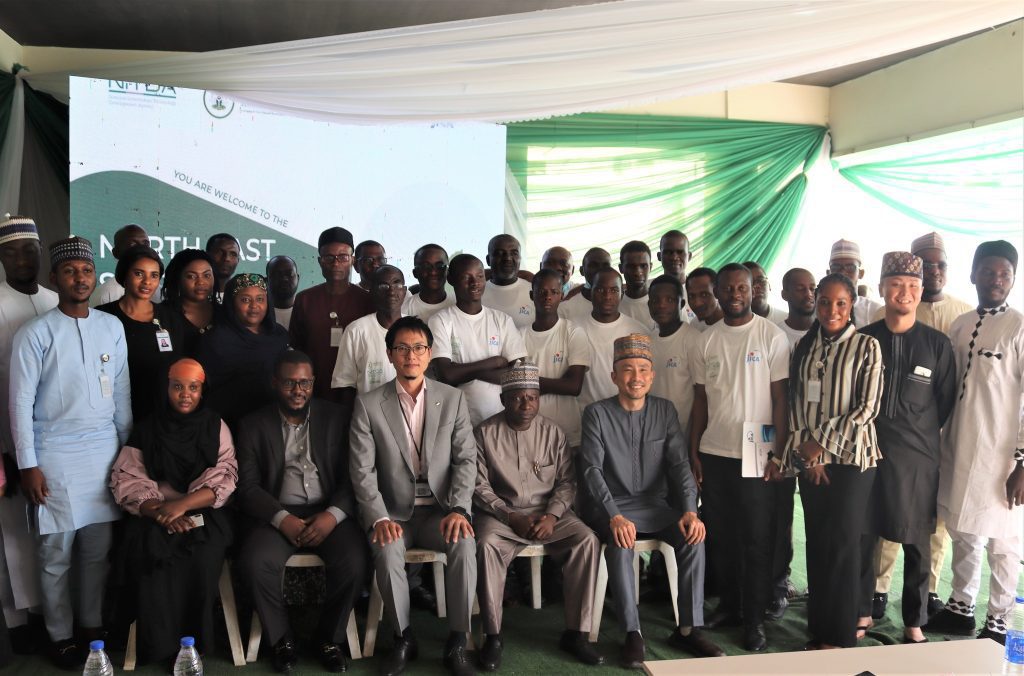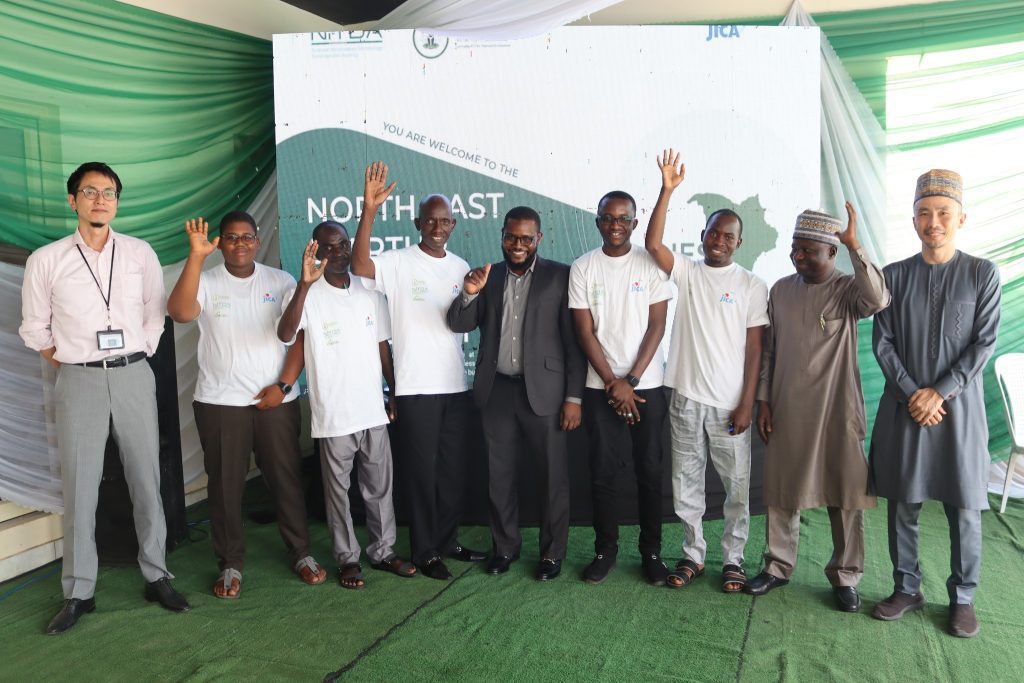The National Information and Technology Development Agency (NITDA), through its Special Purpose Vehicle, the Office for Nigerian Digital Innovation (ONDI), in partnership with the Japan International Cooperation Agency (JICA) recently organized and hosted a 14-day intensive training initiative called the North-East Startup Training (NEST) program, as part of the activities of the Project NINJA startup training program by JICA.
NEST, an intensive regional program, is designed to assist Nigerian entrepreneurs operating in the country’s Northeast region to refine their business ideas, with a strong focus on the youths, creativity, innovation, entrepreneurship, and, of course, technology. The program entailed a series of coaching, lectures, and boot camps, meant to help create sustainable business models.
At the end of the Abuja-hosted event, which was held under the auspices of the ONDI and NITDA, three startups were shortlisted from a pool of 20 trained to accelerate their digital capabilities and expand their base talent-wise. Companies were selected from the six states in the Northeast, one of Nigeria’s six geopolitical zones.

Courtesy: JICA
Fuwa Nao, who works as JICA’s expert for Startup Ecosystem Enhancement, says the initiative focuses on the Northeast region—rather than the Southwest region where the thriving Lagos ecosystem is located—because it seeks to make technological development a lot more encompassing for the Nigerian economy.
“Nigeria has six geopolitical zones, of which the northeastern region is the least developed, partly due to security concerns caused by an insurgency. We believe that the development of the country as a whole will be achieved through cooperation and competition among regions, rather than focusing on one city, Lagos, and that the startup ecosystem in the northeastern region needs to be improved through further support,” Fuwa told WeeTracker.
“For example, in the United States, not only San Francisco, but also Los Angeles, Boston, and New York are growing faster and bigger as they compete with each other. I strongly believe that it is important to have regional characteristics and to cooperate while competing with each other,” he added.
The ONDI is a Special Purpose Vehicle of NITDA, created to streamline the coordination and support of activities on policy implementation and interventions targeted at the development and growth of Nigeria’s technology ecosystem. In this regard, ONDI is facilitating the partnership between NITDA and JICA, conceptualizing, designing, and executing the NEST program.
Regardless of the challenges that have bedeviled the Northeast region, there exist several young and innovative mindsets striving to leverage digital technology to solve the myriad of problems and create value for the people. However, most of these innovators lack a functional support network that will aid them in achieving their dreams of building a viable, scalable business that will create the desired impact.
Yakubu Musa, Acting National Coordinator, Office for Nigerian Digital Innovation (ONDI), says that most of the participants. admitted to the NEST being their first training on the related topics. Some of the participants had their first pitching experience during the NEST.
“Therefore, the benefits are enormous as it will empower them with a better understanding of how to refine their business models, legal requirements in operating their companies, strategies to sell their products and expand their customer base, and better position themselves to attract investments. These are some of the benefits for the participants,” Yakubu told WeeTracker.
The three startups selected at the close of NEST were Sadiqu & Sons Premium Industry Ltd., Five Stars Information and Communication Technology (5th Agro), and Yola-based Destech Software.
Sadiqu & Sons Premium Industry Ltd helps organizations, communities, and individuals to gain better access to IT solutions and products. Destech specializes in providing information technology services via a network of IT professionals, system designers, software developers, technicians, and financial experts. Five Stars Information and Communication Technology (5th Agro) specializes in sustainable agriculture to help smallholder and large-scale farmers get at least 30 percent more profits.
According to Amieen Bala, Managing Director, and CEO of Destech Software, JICA and ONDI have played a vital role in initiating NEST. He says the program will not only benefit the shortlisted startups but all the participating companies and the owners of such companies.

Courtesy: JICA
“One important point to mention is that JICA, NITDA, and ONDI are with us from the beginning of every session to the end. They even go to the extent of creating more time to spend with us to make sure the aim and objective of the NEST program are fully achieved. We all learned from the experts that served as resource persons to coach/train us,” he relayed to us.
No doubt, Nigeria is a busy and somewhat influential context in the African tech ecosystem’s grand growth pattern. In 2021, of the USD 4.08 B venture capital raised by tech startups in the continent, Nigeria absorbed a significant USD 1.42 B. Compared with South Africa’s USD 730 M, it is obvious how much potential lies in the West African country’s digital space.
Even though the market lays claim to 5 of the 8 tech startup unicorns existing in the continent, there remains the problem of inconsistent growth caused by the absence of initiatives to support companies at the grassroots and in the underserved or overlooked hemispheres. More so, the lack of interaction among entrepreneurs is a major setback.
“We believe that mutual understanding, learning, and networking among entrepreneurs are very important for their growth as entrepreneurs, and we designed the program while emphasizing this point. Therefore, we provided a lot of time to communicate, discuss, and understand each other through training,” JICA’s Nao Fuwa recounted.
One of the numerous Japanese efforts to support the growth of technology in Africa, this is the pilot phase of the NEST program. It has 20 startups in its first cohort, and there is no definite number of how many entrepreneurs the initiative would end up empowering.